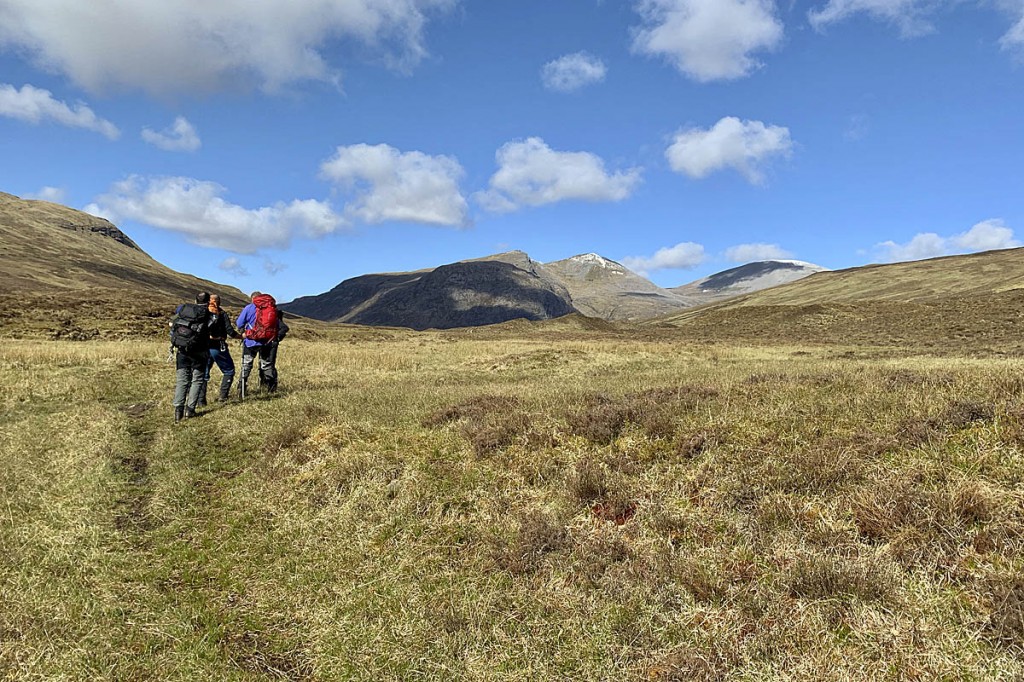
Many of the teams, such as Dundonnell MRT, cover large remote areas. Photo: Andy Beaton/Dundonnell MRT
Members of the largest group of mountain rescue teams in Scotland spent almost 27,000 hours on callouts last year.
The figures were released by Scottish Mountain Rescue, the umbrella body for 24 of the nation’s 28 teams.
Statistics reveal that Saturday is the peak day for callouts, with summer hillwalking responsible for most incidents, followed by winter hillwalking, the figures for which were 188 and 41 respectively.
Rock-climbers needed rescue seven times, snow- and ice-climbers five times and scramblers twice.
There were 672 callouts by the teams, one fewer than the previous year. A total of 243 were mountaineering-related, involving hillwalking rock-climbing, winter climbing and scrambling, while 259 were non-mountaineering incidents.
However, four of Scotland’s busiest teams: Lochaber, Glencoe, Cairngorm and Tayside, belong to the separate independent Scottish Mountain Rescue.
SMR members, which also include three Police Scotland teams and one from the RAF Mountain Rescue Service, helped a total of 595 people in 2019, while three incidents involved dogs and two rescues were for sheep.
SMR chairman Damon Powell said: “Mountain rescue teams are often based in rural or semi-rural regions and are integrated within their local communities.
“Rescue teams support their communities but that support is very much two-way. A team member needs the support of their household, their work colleagues, extended family and friends to enable them to respond to a callout or be free to train.
“A team needs the support of their community to help with the non-operational side of running a team whether it be fundraising, helping with medical training or cleaning a rescue post once a week. Local members of the community also help access remote areas, when those community members have specific local knowledge and can provide advice to support with a rescue.
“All mountain rescue teams are supported by people they have rescued, either in raising funds or being courageous enough to provide stories so others may learn. Many teams and team members go on to form long term friendships with people who have been rescued.
“So yes, mountain rescue teams support many others, but they are also supported by a wide range of individuals and organisations who all contribute to providing a safer environment for people to work and play in.”
The 850 volunteers in the teams, from the Hebrides and Assynt to Border Search and Rescue Unit and Tweed Valley, spent 26,934 hours on callouts last year. Membership also includes Search and Rescue Dogs Associations, Scottish Cave Rescue Organisation and Search and Rescue Aerial Association-Scotland, which flies drones to aid searches.
The work of the teams is detailed in the SMR annual report, which can be viewed online.
Kev Mitchell, vice-chair of Scottish Mountain Rescue, said: “We hope the production of our annual review will give the general public a flavour of the hard work and commitment shown by Scottish mountain rescue team volunteers and while we are proud of nearly 27,000 hours of volunteering on callouts, this figure can easily be doubled when training activities are taken into account.
“A truly magnificent effort from SMR teams who are volunteering to save lives. Any hour, any day, any weather.”